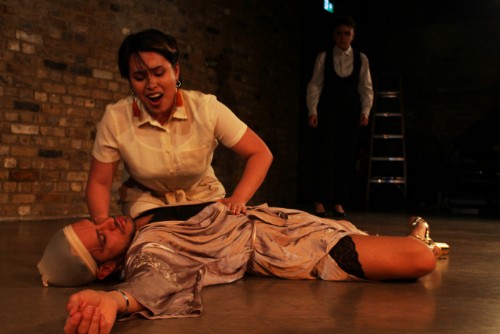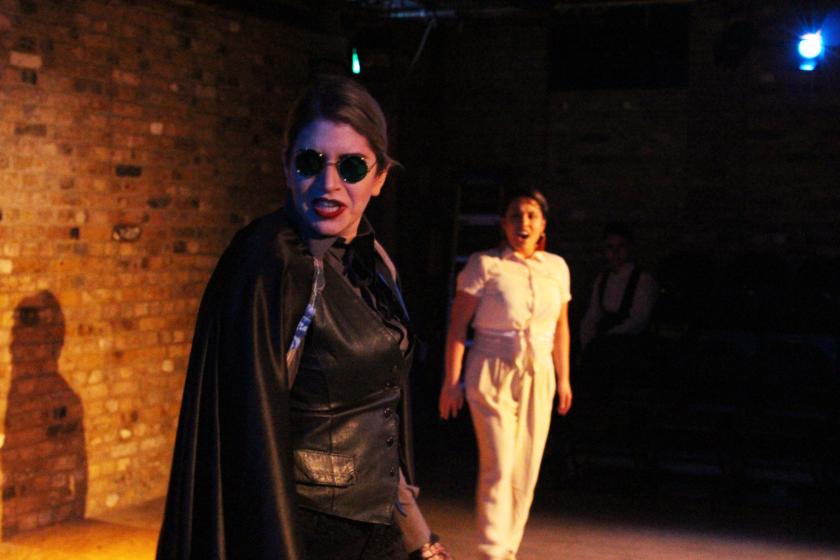Described as a "performer-led re-devising’"of Mozart’s 1787 opera Don Giovanni - a tale of an arrogant and ruthless lothario who seduced countess women - Don Jo certainly played around with many of the norms we encounter in both sexual relationships and in the operatic genre. Presented by Arcola Participation’s Queer Collective - a performance collective for LGBTQI+ people run as a strand of Arcola’s youth and community work - Don Jo aims to give a voice to those whose stories are often underrepresented on the stage.
The piece illuminates many pertinent issues. Consent, power dynamics, and gaslighting are all explored. Both Don Giovanni and Leporello are still portrayed very much as male characters, but are played here by female presenting performers. A concept hardly revolutionary in the world of opera, though traditional trouser roles these ain’t. These were not sopranos pretending to be boys, rather, the idea here was to have women fully in command of strong, powerful roles. The grumbling servant Leporello is charmingly played by Manon Clement, and Arden Fitzroy was commanding as the Don himself. Dressed all in black, with a splendid satin cape and dark glasses, Fitzroy was reminiscent of the late Karl Lagerfield as they first swirled onto the stage.
The Commendatore - whose daughter is assaulted by Don Giovanni at the start of act one - is a woman character played by a man wearing a pink silk dressing gown and shiny gold heels. Said dressing gown resurfaced during the show’s final moments, which, though easily in danger of becoming little more than a farce, were perhaps the most effective. The chorus carried the empty garment to represent the Commendatore’s ghost as they gave their take on the opera’s final ensemble bars with great gusto. Sure, the singing was rough and ready, and not really in tune, but the fury and conviction with which they sang lent a rousing spirit to the piece.

Flipping stereotypes can be an effective way, not necessarily to prove a point, but to encourage thinking from a different angle and see things from another’s perspective. Art has long been used as an important and powerful tool to highlight social injustice and inspire change. But, for this to be truly effective, the piece itself needs to be both composed and executed with excellence and integrity, and sadly Don Jo fell short of this. Most of the music was pre-recorded. The opening, which spliced various bars from old recordings of Don Giovanni with excerpts from films, pop songs and musicals was quite cleverly done, sounding like when you twist the dial on an analogue radio. As the piece went on though the lack of live music went from curious to plain ridiculous for something which presents itself as opera, as opposed to a play with songs.The singing had similar issues. Only one member of the cast appeared to have had any operatic training: Filipino mezzo Renee Fajardo, who sang the role of Donna Anna. She had a powerful voice and engaging presence, though intonation was not always one hundred percent. The rest of the cast’s singing was clearly enunciated and effectively drove the story on, though for the most part was not particularly musical.
Conceptually, Don Jo is a piece brimming with energy and ideas. It just needs to stand on much more solid musical ground to be regarded as a valid piece of opera.















Add comment